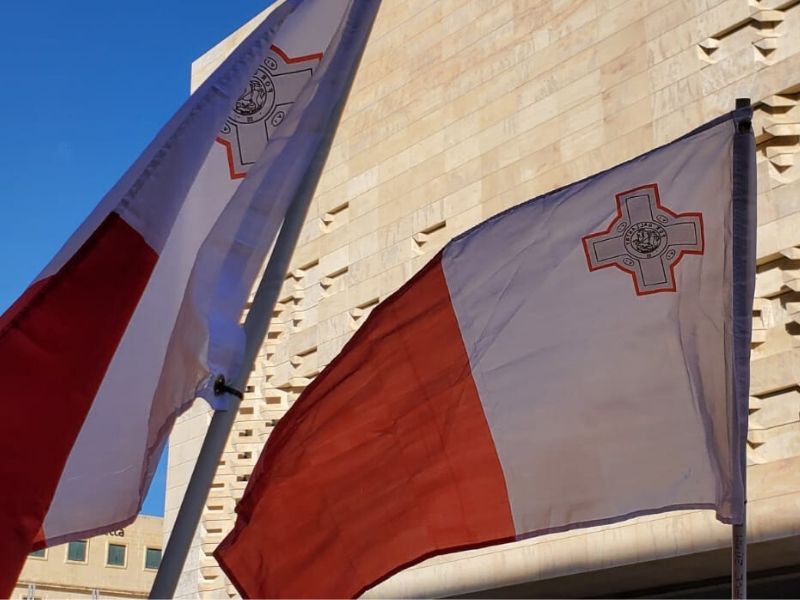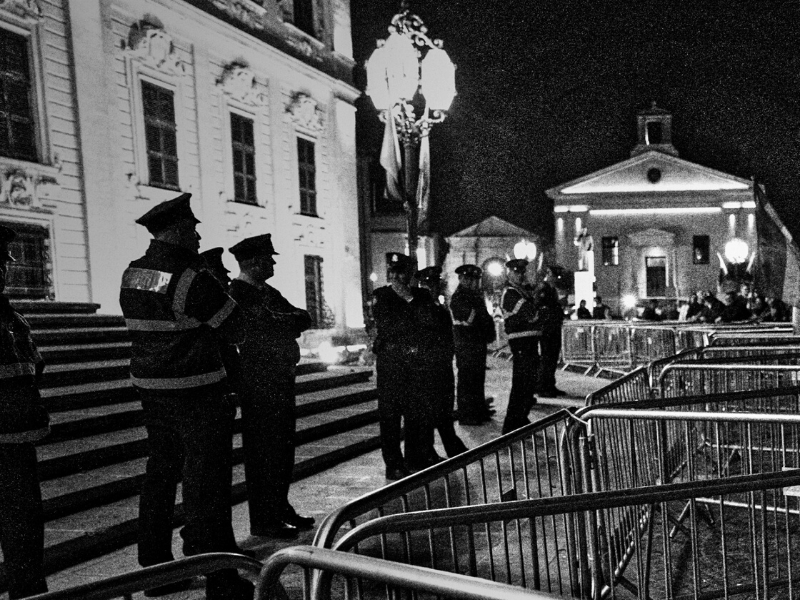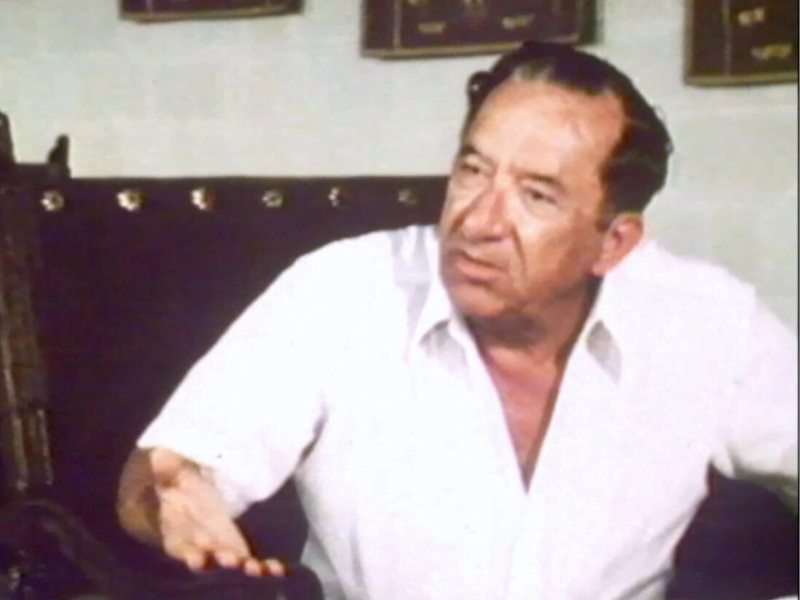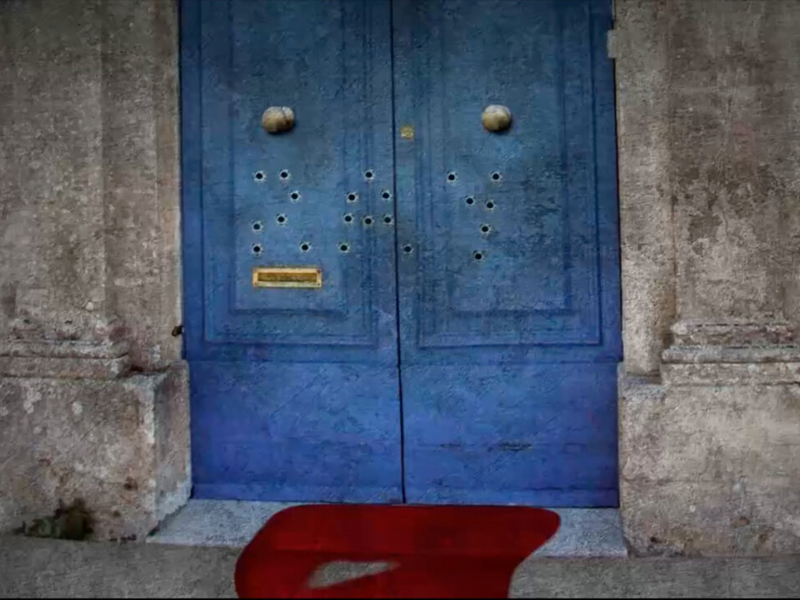“The whole bunch of them should resign en masse. I have never seen so much corruption since 1985. I am truly revolted. And I have finally understood what very dangerous people I am dealing with here”. Daphne Caruana Galizia – March 4, 2017
As any naturalist will tell you, ants and bees have long been admired as living proof of universal virtue. Their reproduction is restricted to queens and drones while the workers, devote themselves instead to the service of the nest. And yet, crime lurks even in these fascinating communities.
In virtually all the eusocial insect communities (the Greek prefix ‘eu’ meaning ‘good’ or ‘real’), a few workers sneakily lay eggs of their own, that can grow into reproductive males. By doing so, they divert shared resources away from the nest and consequently reduce the fitness of their nestmates. They play the system for their own advantage, which is why in many of these species, these devious acts are kept in check by policing behaviour.
Ordinary honeybee workers detect and eat more than 99% of the eggs laid by their sisters. In tree wasps, the attacks are carried out exclusively by wasps who are themselves cheats. They are bigger and tougher than the average tree wasp, which comes in handy both in their police work and their criminal activities.
In short, we are looking at a typical pattern in nature. A population organises itself around rules. It grants police powers to some of its members – and then those law enforcers use their privileges to cheat the system.
If you are someone who is not easily distracted by cheques in the mail, the news that the courts have asked the police to investigate former police commissioner Lawrence Cutajar should come as no surprise. Cutajar resigned in January but not before securing a government consultancy contract that was handed to him the same day of his resignation and which was subsequently suspended as quickly as it was obtained.
Just another mark then, in a depressingly long list of scandals, spanning seven years, that have chipped away at the police force’s investigative ability and its credibility ever since the Labour Party was voted into office in 2013. But no, there is no need for a Europol Joint Investigative Team, we are doing just fine, thank you very much.

Citizens held Maltese flags in a protest in front of parliament on 22 June, 2020. Photo: Caroline Muscat.
Dear Joe, how did we get here?
An indication that things were about to take a downward turn was when John Rizzo, who was awaiting the return to Malta of disgraced European Commissioner John Dalli to charge him on his alleged corrupt dealings, was made to step down in April 2013, after 12 successful years as Police Commissioner, a month after the Labour Party won the general election.
Rizzo’s dismissal was followed by a rapid succession of overtly political appointments to the post of Commissioner, starting with Peter Paul Zammit who stepped down a year later. Raymond Zammit was then appointed acting commissioner and after that, Michael Cassar was appointed in December 2014.
Cassar resigned in April 2016 citing health reasons even though his resignation happened to coincide with the first FIAU report into the Panama Papers scandal which was submitted to him for action to be taken.
If this were a private company, this level of turnover from the top post would have seen its stocks plummet and its shareholders baulk. But Labour Party defenders say this was because the Labour Party is about “renewal”, as though the police force was part of the Party’s structure.

Police standing behind barricades set up in front of the Prime Minister’s Office during street protests in late 2019. Photo: Pierre Ellul.
The public outcry that followed Cutajar’s appointment was understandable: not only did his track record show that he had little administrative and investigative abilities (and was simply considered by many as “unfit for purpose”), but it was perceived that his role was to stall any and all forms of investigations into the wrongdoing of those in, or associated with, government.
Stalling – either directly, or indirectly by failing to remove those field investigators who were not coming up with results – is exactly what he appears to have done. He may not have ignored three FIAU reports, but he has nothing to show that he or his subordinates took these reports seriously.
We now know that Ian Abdilla, Head of the Economic Crimes Unit and Assistant Commissioner who was already accused of sitting on the evidence of criminal wrongdoing allegedly committed by top government officials, was being summoned to meetings by Keith Schembri, the prime minister’s former chief of staff (one of the high level officials identified in the Panama Papers).
After that, it was the turn of Silvio Valletta, deputy Police Commissioner who was allegedly leaking information to Yorgen Fenech, the prime suspect in Daphne Caruana Galizia’s murder. So, of course, no one batted an eyelid when reports surfaced that 32 police officers were allegedly involved in an overtime abuse racket within the police force’s traffic section.
With all that was going on at the highest levels of government and of the Police Force, is anyone shocked that traffic police officers would try their hand at corruption? Tree wasps indeed.
The public inquiry into Caruana Galizia’s murder, which took two years to materialise following repeated calls by the journalist’s family, civil society and international groups, is ongoing. New information emerges daily, so whether we have hit rock bottom or just the bottom of the sea shelf remains to be seen.
Dear Dom, is this your legacy?
For many who are old enough and who choose to remember, this is certainly not the first time Malta’s police force crumbled under the weight of corrupt practices and political interference, nor is it the first time a former police commissioner is being investigated for some form of wrongdoing or omission of duty.
Our island has some history in this respect and, as one editorial put it, “Not for four decades has the Malta Police Force been in such an abject state”.
Perhaps rather tellingly, comprehensive research on Malta’s political climate in the 70s and 80s appears to be fragmentary and is currently a mixture of personal anecdotes, biographies and stand-alone articles. The documentary Dear Dom, a film by Pierre Ellul, goes some way in trying to capture the evolution of one of Malta’s most divisive political figures, former prime minister Dom (Dominic) Mintoff as well as the key events and changing mood of the time.
Mintoff needs no introduction. He was the leader of the Malta Labour Party between 1949 and 1984. His combative way of doing things was well known and it served to bring about some much-needed changes. But after his return to office in 1971, which was when he went on to consolidate his power, he (and his government) became increasingly heavy-handed with those perceived as adversaries.
He began by forcing out Commissioner of Police Vivian de Gray, who had stood up to him in 1958 by refusing to compromise on public order during the street demonstrations of that year.

Screengrab from the film Dear Dom / BBC archive.
The judiciary wasn’t spared. In the early 70s, Malta’s constitutional court was suspended although this had probably less to do with the judiciary and was more of a tactic used to put pressure on the Opposition during the negotiations on constitutional changes taking place at the time.
Dissent, or what was perceived by the government as dissent or lack of compliance by the judiciary, did not go unnoticed.
Even after 1974, cases brought against the government faced long delays – with lawyers appearing for the government exploiting to the full the overburdened judicial system and the prevailing mentality in legal circles that “all cases must take their time to mature” – and judges were transferred for ruling against the government.
A law in 1981 sought to reduce the courts’ powers of judicial review of administrative acts.
Then there was the government-sanctioned violence, which is what ultimately cast a long shadow on all the changes Mintoff sought to enact.
The personality cult he cultivated, attracted many of Malta’s well-known criminals who, while parading as Mintoffians, could do as they pleased. This included setting fire to the Progress Press establishment on 16 October 1979 and attacking the house and family of the Leader of the Opposition at the time, Eddie Fenech Adami. (Daphne Caruana Galizia was killed on the same day, 38 years later.)
Despite the house being next to a police station, none of the culprits was ever apprehended. By the early 80s, the violence intensified. Provocations and retaliations, which were a mixture of calculated gruesome murders and wanton drive by killings, continued with impunity and by this time the police were in on it too.
They went from turning up at opposition gatherings in full riot gear (equipment that was donated to Malta by North Korea) to concocting the frame up of Pietru Pawl Busuttil for the murder of Raymond Caruana. A crime that to this day remains unsolved. The police commissioner at the time, Lawrence Pullicino, also oversaw the brutal beating that led to the death of Nardu Debono while in police custody.
Labour supporters of moderate temperament are often quoted as saying that Mintoff was unable to control those individuals who went “rogue”, but if he was the master orator who could lull a frenzied crowd into silence with a mere wave of his hand and if he carried the political clout everyone said he did, then this “excuse” does not hold.
There must have been something of a deliberate decision. Moreover, the idea of “a few bad apples” in the police force is preposterous when one of those apples was sitting at the top of the chain of command.
There is no joy in writing about this history or in the realisation that current events remind so many of such a dark past. It means that intrinsically, little, if anything, has changed.

Citizens demanded the resignation of police commissioner Lawrence Cutajar immediately after the assassination of journalist Daphne Caruana Galizia but the call fell on deaf ears until testimonies in court implicated him in the cover-up. Photo: Il-Kenniesa.
We are not bees, are we?
But a change has been promised. Angelo Gafà has been appointed to the post and has assured one and all that things will be different this time.
His appointment, however, has already courted controversy when sources within the police force strongly suggested that the government’s choice was predetermined even though it was made to look like it was enacting recommendations by the Council of Europe’s Venice Commission by issuing a public call for applications.
What’s more, the Opposition’s refusal to attend the parliamentary sitting where Gafà was grilled, meant that parliamentary scrutiny was carried out solely by government MPs who anyway simply do as they are told regardless of whether they have any reservations.
Lastly, the fact that he will be on a year’s probation means that the government has given itself a trump card that can be used as an excuse for his removal – just as former FIAU inspector Jonathan Ferris who was investigating government corruption allegations at the time, was removed from his position using his probation period as a credible excuse.
The human equivalent of the honeybees is practically all of a society that is ready to stand for the common good. Policing of both major and minor infractions would be done by everybody and not by an elite separate group thus making corruption an unappealing choice.
Of course, this theory doesn’t account for the complexities of the human mind or the nature of island society, neither of which lend themselves particularly well to this idea. However, for anyone taking notice, in the midst of the current detritus, there is a sliver of hope.
The 2019 report by the Ombudsman highlights how civil society was “galvanised into action” and became “more organised, vociferous and proactive”, which is what brought about the resignations of Joseph Muscat and his closest associates. The buzz may finally be starting to sound more like that of the honeybee.












